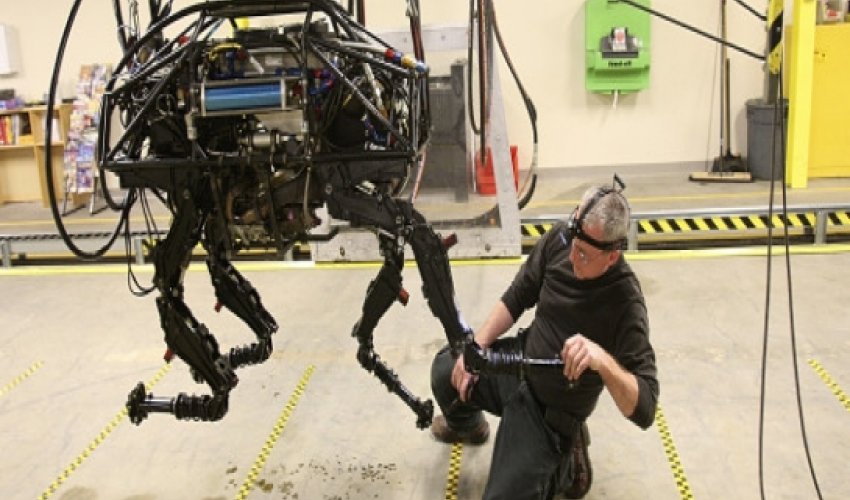Robots could replace some soldiers By 2030

As artificial intelligence rapidly advances, one of the next groups to see their lives altered by robotics could be some soldiers in the U.S. Army. This is according to Gen. Robert Cone, who during the Army Aviation symposium last week said that the Army is considering reducing the size of certain teams and using drones and robots to compensate for lost firepower, Defense News reported.Defense News noted that Cone echoed the sentiment of Lt. Gen. Keith Walker, who in a Jan. 6 interview with the publication said “we’ll need to fundamentally change the nature of the force, and that would require a breakthrough in science and technology." Walker estimated that these changes could happen by 2030 or 2040.Though Cone and Walker didn't explicitly say so, Popular Science theorizes that cost-efficiency may be the reason behind the interest in robotics. Robots would cut back on the money needed to train, feed and supply soldiers at war, along with the continuous cost of medical care and other services provided to veterans. In 2012, one-quarter of the Pentagon's budget request went towards benefits for serving and retired members of the military.Some of the robots Cone and the Army may have in mind could include those created by Boston Dynamics, the Massachusetts robotics company acquired by Google in December. The company has done work for the Department of Defense in the past, and primarily focuses on robots capable of aid in war or disaster zones. Its repertoire includes several freakishly futuristic and powerful machines. One is the GPS-outfitted, four-legged LS3, capable of carrying up to 400 pounds of supplies for troops on the move and taking commands from soldiers. Another is Atlas, a humanoid which can navigate rough terrain, drive a car and help out with tasks that may be required in a disaster zone.It's unclear how these advances will affect the careers of servicemen and women. Other jobs, however, are already being threatened by technology's rapid ascension. A September report from the Oxford Martin School’s Programme on the Impacts of Future Technology concluded that 45 percent of American jobs are at high risk of being taken by computers within the next two decades. The most vulnerable jobs were found to be those in fields like transportation, production labor and administrative support, followed by jobs in services, sales and construction.(huffingtonpost.com)ANN.Az




































 Photo
Photo 



 Video
Video 

